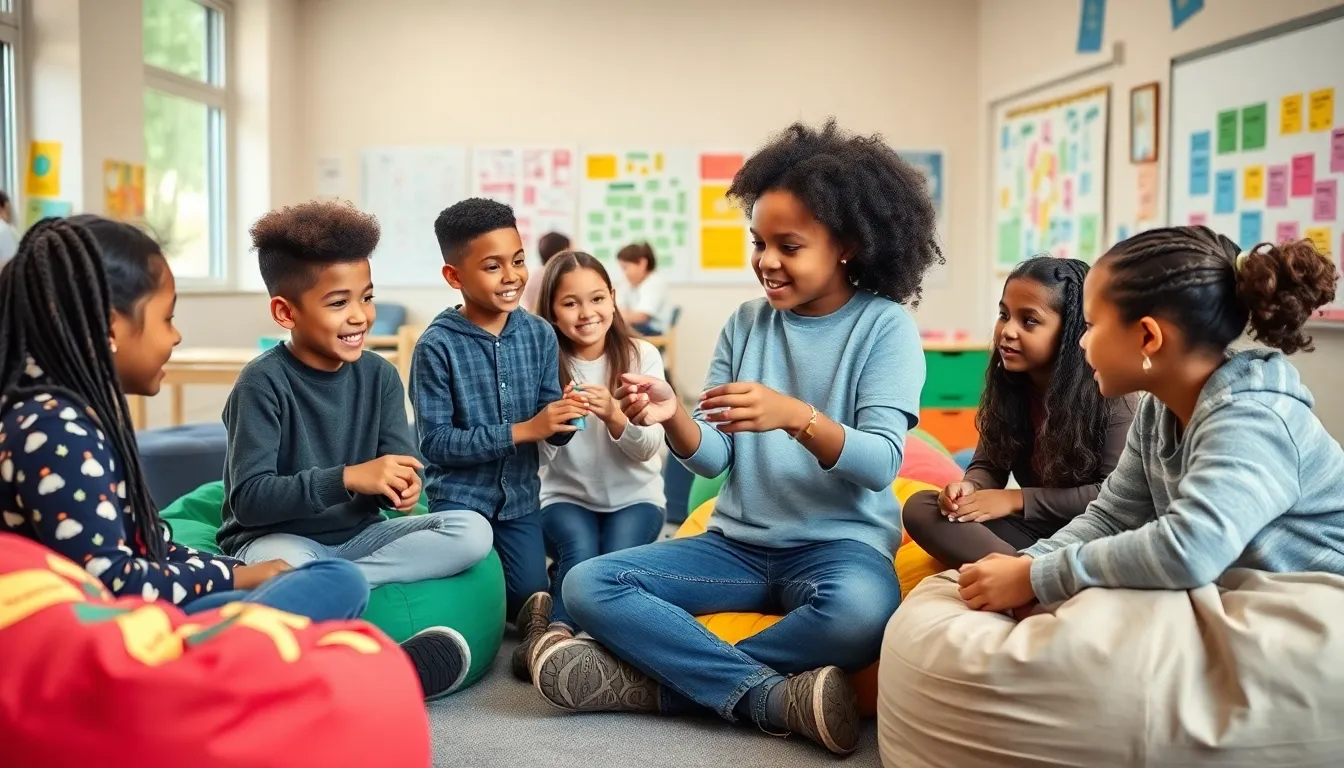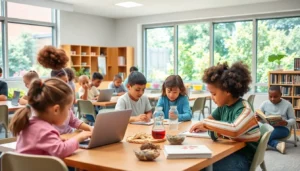Table of Contents
ToggleIn a world where traditional education often feels like being trapped in a never-ending loop of worksheets and standardized tests, alternative education schools emerge as a breath of fresh air. They offer innovative approaches to learning that spark creativity and encourage critical thinking. Picture this: no more desks in rows and no more bells dictating when to talk or what to learn. Instead, these schools embrace a more personalized method of education that can cater to diverse learning styles. So, what exactly are alternative education schools, and why are they gaining traction? Let’s explore this fascinating topic together.
What Are Alternative Education Schools?

Alternative education schools are institutions that provide non-traditional learning environments and methods. Unlike conventional schools, which often adhere rigidly to a set curriculum and standardized assessments, these schools focus on tailoring education to fit the unique needs of each student. Here, the philosophy often prioritizes personal growth over rote memorization. Many alternative schools use experiential learning techniques, project-based curricula, or even homeschooling approaches to engage students. They typically aim to foster not only academic success but also social skills, emotional well-being, and a love for learning.
Types of Alternative Education Schools
There are several types of alternative education schools, each with its own unique approach:
Montessori Schools
These schools emphasize hands-on learning and independent exploration. Students are encouraged to choose their activities, which promotes motivation and creativity.
Waldorf Schools
Focused on holistic education, Waldorf schools integrate arts and academics, nurturing every aspect of a child’s development. The curriculum evolves as children grow, fostering imagination alongside critical thinking.
Democratic Schools
Students in democratic schools play a significant role in their education. They have the freedom to set their curriculum and make decisions about classroom rules and activities, creating a community-oriented learning space.
Online Alternative Schools
With technology at the forefront of education, online alternative schools provide flexibility for students who may not thrive in a traditional classroom setting. They often cater to diverse lifestyles and learning speeds.
Special Needs Schools
These institutions focus on accommodating students with learning disabilities or other challenges. They tailor their instructional strategies to support individual learning needs and foster a positive environment.
Benefits of Alternative Education Schools
Alternative education schools offer a multitude of benefits, particularly for students who may struggle in conventional settings:
- Personalized Learning: One size doesn’t fit all, and alternative schools typically adjust their methods to align with the unique needs of each student.
- Enhanced Creativity: By encouraging students to take charge of their education, these schools foster critical thinking and innovation, skills desperately needed in today’s job market.
- Stronger Community Ties: Many alternative schools emphasize collaboration between parents, teachers, and students, strengthening community relationships and support systems.
- Fostering Emotional Well-being: With a focus on social and emotional development, students often find these environments more nurturing and less stressful, which can lead to improved mental health.
- Diverse Learning Opportunities: From project-based learning to real-world experiences, alternative schools often provide students with opportunities to engage with their communities and explore subjects in depth.
Challenges Faced by Alternative Education Schools
Even though their many advantages, alternative education schools are not without their challenges:
- Funding and Resources: Many alternative schools depend on private funding, which can lead to issues with stability and resource availability.
- Lack of Awareness: Some parents may not be aware of alternative education options or may have misconceptions about their effectiveness compared to traditional schools.
- Accreditation Issues: Not all alternative education institutions receive the same level of accreditation as traditional schools, which can affect students’ futures.
- Social Stigmas: Students in alternative education settings might face stigmas or misconceptions from peers or potential employers about the quality or validity of their education.
How to Choose the Right Alternative Education School
Selecting the right alternative education school is a significant decision. Here are some tips to guide you through the process:
- Identify Educational Philosophy: Explore different teaching philosophies to understand what aligns with your child’s learning style.
- Visit Schools: Tour potential schools to observe the environment, interact with teachers, and get a feel for the community.
- Talk to Other Parents and Students: Gather insights from families currently involved in the school to gauge satisfaction and effectiveness.
- Assess Curriculum: Look into the school’s curriculum to ensure it meets academic standards while also offering enrichment and support.
- Evaluate Extracurricular Activities: Consider schools that provide a variety of extracurricular activities, as these foster social skills and personal interests outside traditional academics.
Success Stories: Impact of Alternative Education
Alternative education schools have been pivotal in transforming many students’ lives:
- Case Study: Montessori Success
A student at a Montessori school who struggled with traditional learning eventually flourished by engaging in hands-on activities, resulting in remarkable academic achievements and increased self-esteem.
- Democratic Schools in Action
In a democratic school setting, students organized community service projects, developing leadership skills and a sense of responsibility while benefiting their local community.
- Online Learning Triumph
Students utilizing online alternative education platforms discovered a newfound passion for learning, successfully balancing their studies with personal commitments and activities.
The Future of Alternative Education
As education continues to evolve, alternative education schools are set to play an increasingly vital role. The rise of technology and changing societal needs are prompting more families to seek out customized learning experiences. Future developments may involve greater collaboration between traditional and alternative schools, integrating the best aspects of both. Plus, as awareness grows about the limitations of conventional education, more options may emerge to cater to varying learning styles and needs, eventually benefiting students and society as a whole.




